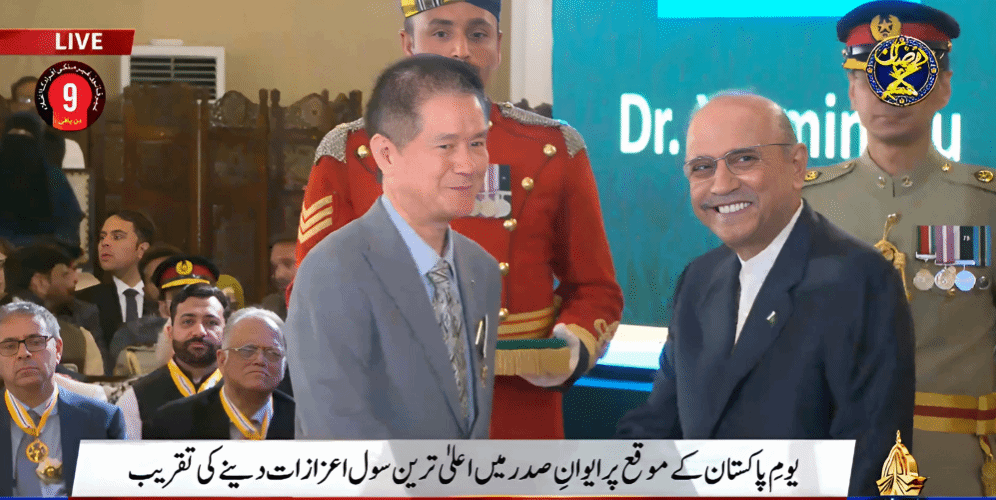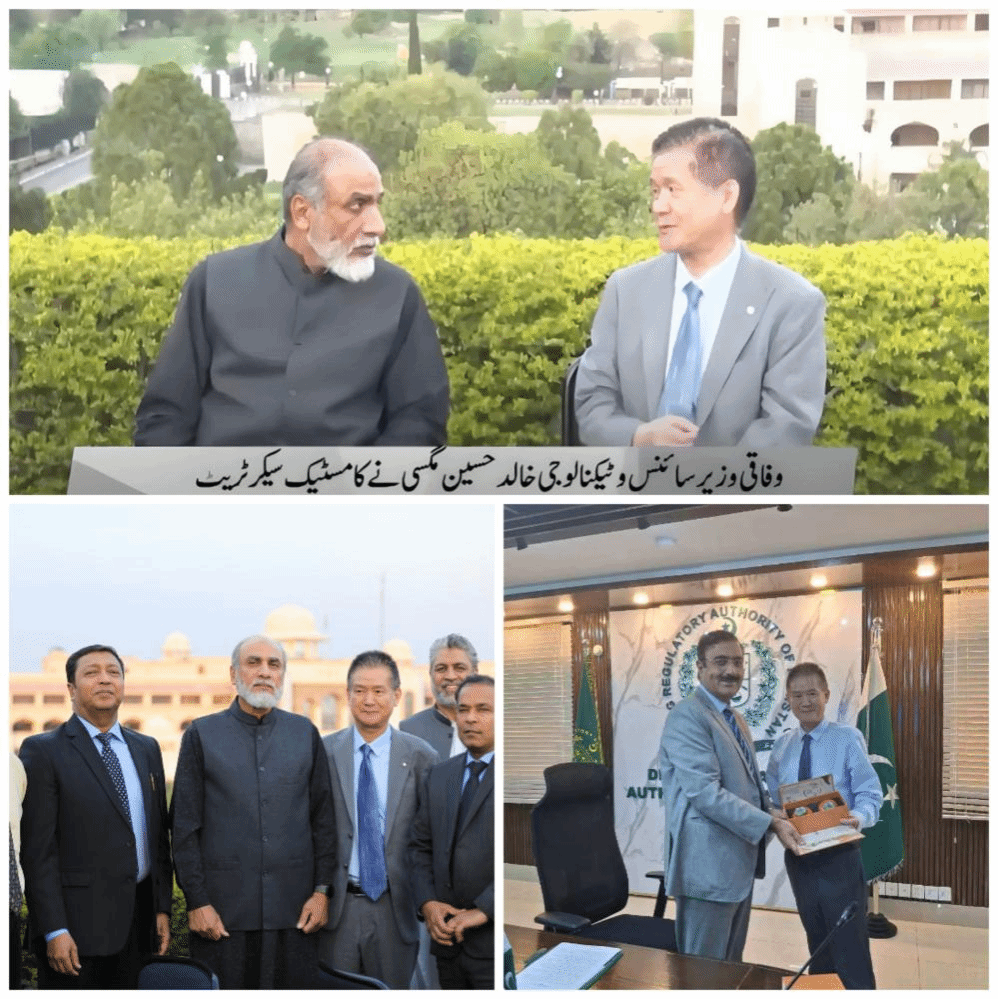On March 23, Professor Liu Xinmin, Chief Scientist of the Institute for New Drug Technologies at Ningbo University, was honored with Pakistan's highest civil award, the "Tamgha-e-Quaid-e-Azam," by President Arif Alvi. The award recognizes Professor Liu's outstanding contributions to Sino-Pakistani cooperation in traditional Chinese medicine (TCM) over the past two decades. His efforts have facilitated impactful international collaborations among over 30 Chinese and Pakistani institutions engaged in TCM-Unani medicine research, education, healthcare, and industrial development. These partnerships have driven progress in healthcare integration, technological innovation, and mutual recognition of standards between the two nations, significantly enhancing the global influence of life sciences and standardization initiatives.
From March 19 to 25, Professor Liu led a delegation to Pakistan to deepen collaboration on the "integration of food and medicine" and clinical translation of herbal medicines.

The visit yielded fruitful outcomes, including discussions with prominent institutions such as Pakistan's COMSTECH Organization, the University of Lahore, the University of Karachi, Hamdard University, and COMSTECH Islamabad, alongside exchanges with the Ministry of Science and Technology and Drug Regulatory Authority of Pakistan. Key topics included the fusion of Unani and TCM systems, the development of "food as medicine" concepts for healthcare applications, and clinical exploration of herbal medicines in Pakistan. Preliminary consensus was reached on strengthening traditional medicine cooperation, establishing joint R&D platforms, and advancing clinical translation, injecting fresh momentum into Sino-Pakistani collaboration.

Professor Liu's contributions extend beyond academic exchange to fostering international partnerships. Future initiatives will focus on launching a Sino-Pakistani joint R&D mechanism, co-developing "food-medicine" products, promoting clinical adoption and industrialization of TCM in Pakistan, and training Pakistani practitioners of traditional Chinese medicine. Additional plans include supporting the establishment of a TCM department at the China-Pakistan Friendship Hospital/Karachi University Affiliated Hospital, jointly applying for Belt and Road Initiative international projects, and expanding the global reach of "food-medicine" innovations. These endeavors aim to pioneer new avenues for Sino-Pakistani traditional medicine cooperation and elevate both nations' standing in global health.
In summary, Professor Liu's Presidential Medal honors his decades-long dedication to advancing TCM and global health. His achievements set a benchmark for international collaboration in related fields, and we anticipate his continued leadership in driving the evolution of traditional Chinese medicine worldwide.